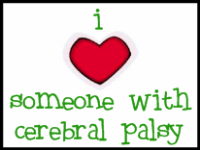Welcome to Friday Facts! here on the Knowledge Safari blog. Each week we aim to shine the spotlight on various segments of special needs in order to raise awareness and provide information.
Today we are highlighting Prune Belly Syndrome
This information is taken from and to read more, click here.
Here is a link to a blog that has not been updated in awhile however, the information is relevant to learn more about children living with this syndrome.
What is it?
Prune Belly syndrome, also known as Eagle-Barrett or triad syndrome, is a distinctive set of physical problems that a child is born with. These problems are:
The abdominal muscles in the front are weak or missing
Parts of the urinary tract develop abnormally
In males (95% of cases), the testes stay up inside the abdomen and don't come down into the scrotum. There may be other physical problems in the infant, such as spinal curvature, hip dislocations, clubfoot, respiratory or heart problems, and gastrointestinal problems.
What causes it?
The cause of the syndrome is unknown, but researchers believe that disruption of the growth of the fetus causes the problems to develop. It is thought that something blocks a part of the fetus' urinary tract, and this causes other parts of the tract to develop abnormally. Prune Belly syndrome occurs in 1 in 40,000 live births in the U.S.
How is it diagnosed?
Ultrasound during pregnancy can sometimes see the abnormal development of the bladder andurinary tract. While the fetus grows, fluid develops in its abdomen, which stretches larger and larger. The fluid is reabsorbed before birth, so when born the infant has a sagging or wrinkled abdomen (thus the "prune belly" name).
After birth, ultrasound and x-rays can determine what type of urinary tract abnormalities are present.
Unfortunately, Prune Belly syndrome can have severe effects on the infant. 20% of babies die before birth, and 30% die from kidney problems with the first two years of life. In the remaining 50% of infants there are varying degrees of urinary problems.
Peace And The Move
23 hours ago































1 comment:
For further information and support please visit http://prunebelly.org/
Thanks
Post a Comment